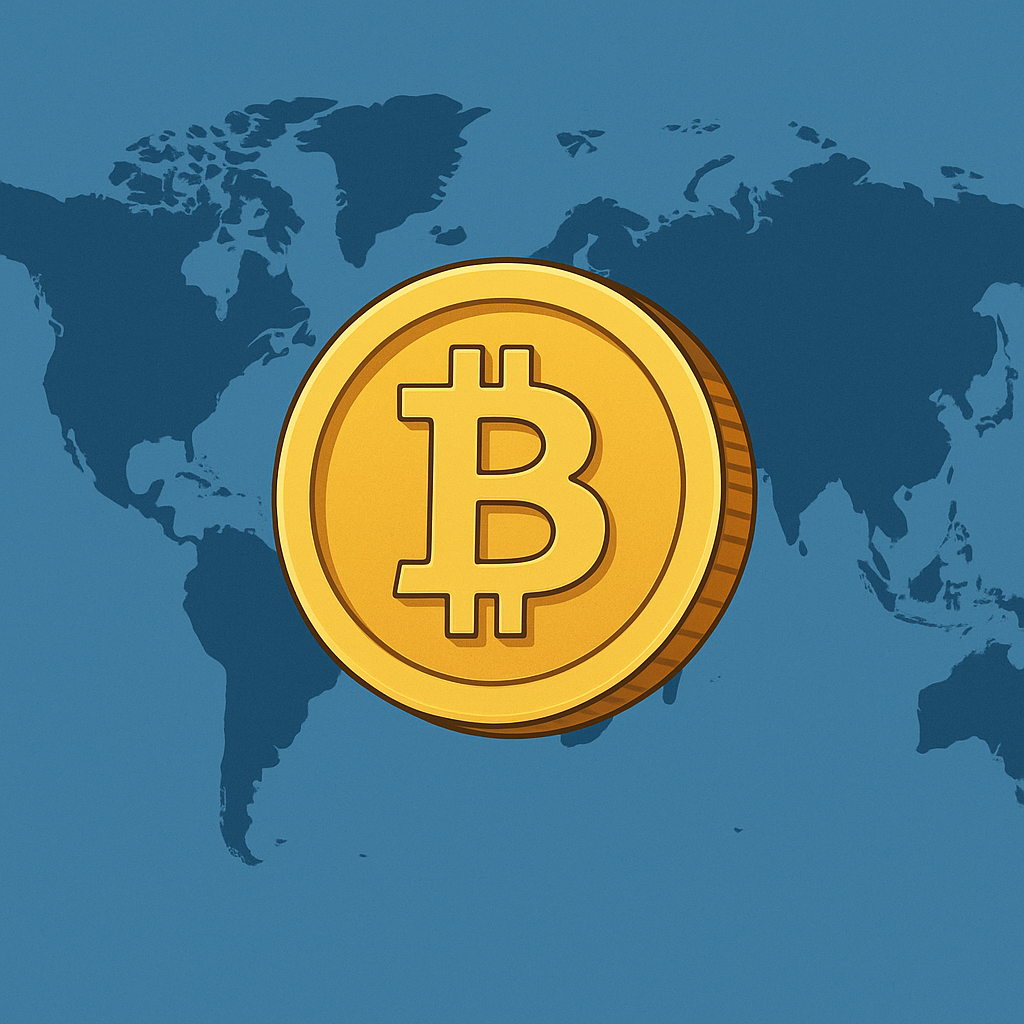Introduction
Can Bitcoin Become a Global Reserve Asset? In the modern economic landscape, the concept of a “global reserve asset” is traditionally associated with fiat currencies such as the US dollar. These assets are held by central banks to stabilize exchange rates and provide international liquidity. However, with the rise of cryptocurrencies—particularly Bitcoin—economists, investors, and governments alike are questioning the role of digital assets in global finance. Can Bitcoin evolve from being a speculative investment to becoming a reliable global reserve asset?
This blog explores the potential of Bitcoin in reshaping the world’s financial infrastructure, the challenges it faces, and the implications for future global monetary systems.
Table of Contents
What is a Global Reserve Asset?
A global reserve asset is a currency or commodity held by governments and institutions in large quantities to support their currencies and manage international trade. The US dollar, for example, constitutes about 59% of global foreign exchange reserves according to the International Monetary Fund (IMF).
Reserve assets are typically chosen based on:
- Stability
- Liquidity
- Acceptability in international trade
- Political trust in the issuing country
Historically, gold was the primary reserve asset before being overtaken by the US dollar after the Bretton Woods Agreement in 1944. The emergence of digital currencies like Bitcoin raises the question: can a decentralized asset take its place?
Why Bitcoin Is Being Considered
Several features of Bitcoin make it an appealing candidate for a global reserve asset:
1. Scarcity and Predictable Supply
Bitcoin has a fixed supply of 21 million coins, making it immune to inflationary pressures caused by central bank policies. Its scarcity mimics gold, a traditional reserve asset.
2. Decentralization
Unlike fiat currencies issued by central authorities, Bitcoin operates on a decentralized blockchain. This makes it resistant to censorship and manipulation, appealing to countries wary of US hegemony in global finance.
3. Transparency and Security
Every Bitcoin transaction is recorded on a public ledger, ensuring transparency. Its blockchain is maintained by a global network of miners, offering a robust security framework.
4. Portability and Accessibility
Bitcoin can be transferred across borders without intermediaries, making it more efficient than physical assets like gold or even some traditional banking systems.
Growing Institutional Interest
Large financial institutions are already recognizing Bitcoin’s potential. Companies like MicroStrategy, Tesla, and Square have invested billions in Bitcoin. El Salvador even adopted Bitcoin as legal tender in 2021.
Additionally, central banks in countries like Russia and China have shown interest in diversifying their reserves away from the US dollar. Bitcoin offers an alternative—albeit a controversial one.
A detailed report by Fidelity Digital Assets argued that Bitcoin may be the most sound money and could play a critical role in future financial systems. (Source)
Challenges Facing Bitcoin as a Reserve Asset
Despite its potential, Bitcoin has several hurdles to clear before it can be seriously considered a global reserve asset.
1. Volatility
Bitcoin’s price is highly volatile, influenced by market sentiment, regulations, and technological developments. Such volatility undermines its role as a stable store of value.
2. Regulatory Uncertainty
Governments worldwide are still grappling with how to regulate cryptocurrencies. Inconsistent or hostile regulations could hinder Bitcoin’s acceptance at the institutional level.
3. Energy Consumption
Bitcoin mining consumes vast amounts of energy, raising concerns about environmental impact. This issue is being addressed through the adoption of green mining practices, but it’s still a point of contention.
4. Lack of Legal Framework
No clear legal or accounting standards currently exist for treating Bitcoin as a reserve asset. Until frameworks are developed, central banks are unlikely to fully embrace it.
Global Reactions and Trends
The idea of a Bitcoin-backed financial future is polarizing. While some see it as a solution to central bank overreach, others view it as a threat to monetary sovereignty.
Pro-Bitcoin nations and entities:
- El Salvador: First country to adopt Bitcoin as legal tender.
- Fidelity Investments: Advocated for Bitcoin as part of a diversified portfolio.
- ARK Invest: Predicts Bitcoin will take a growing share of global capital.
Skeptics and opponents:
- European Central Bank: Warns of Bitcoin’s high risk.
- IMF: Has expressed concern about using Bitcoin as legal tender.
- China: Banned crypto mining and trading activities.
However, despite opposition, interest is growing globally, with countries exploring Central Bank Digital Currencies (CBDCs) that could coexist or compete with cryptocurrencies.
Potential Scenarios
1. Coexistence Model
Bitcoin may not fully replace fiat currencies but could exist alongside them as a digital gold. Central banks may hold a small percentage of their reserves in Bitcoin as a hedge against inflation or currency devaluation.
2. Backup Reserve Asset
In times of extreme geopolitical instability, Bitcoin could serve as a non-sovereign reserve asset, especially for nations excluded from the SWIFT system or under economic sanctions.
3. Transition Catalyst
Bitcoin might push traditional institutions to modernize. Whether or not it becomes a reserve asset, its presence is forcing central banks and governments to rethink money, payments, and financial inclusion.
Conclusion
So, can Bitcoin become a global reserve asset? The answer is: not yet—but possibly in the future. While it has many features that make it an attractive option, significant hurdles remain in terms of volatility, regulation, and global consensus.
However, Bitcoin has already made remarkable progress in just over a decade, challenging century-old financial structures. Whether it becomes a reserve asset or simply a revolutionary technology, Bitcoin is undoubtedly reshaping the conversation about the future of global finance.
As governments and financial institutions continue to explore digital currency frameworks, one thing is certain—the role of Bitcoin in global economics is only beginning to unfold.
Find more Finance content at:
https://allinsightlab.com/category/finance/

